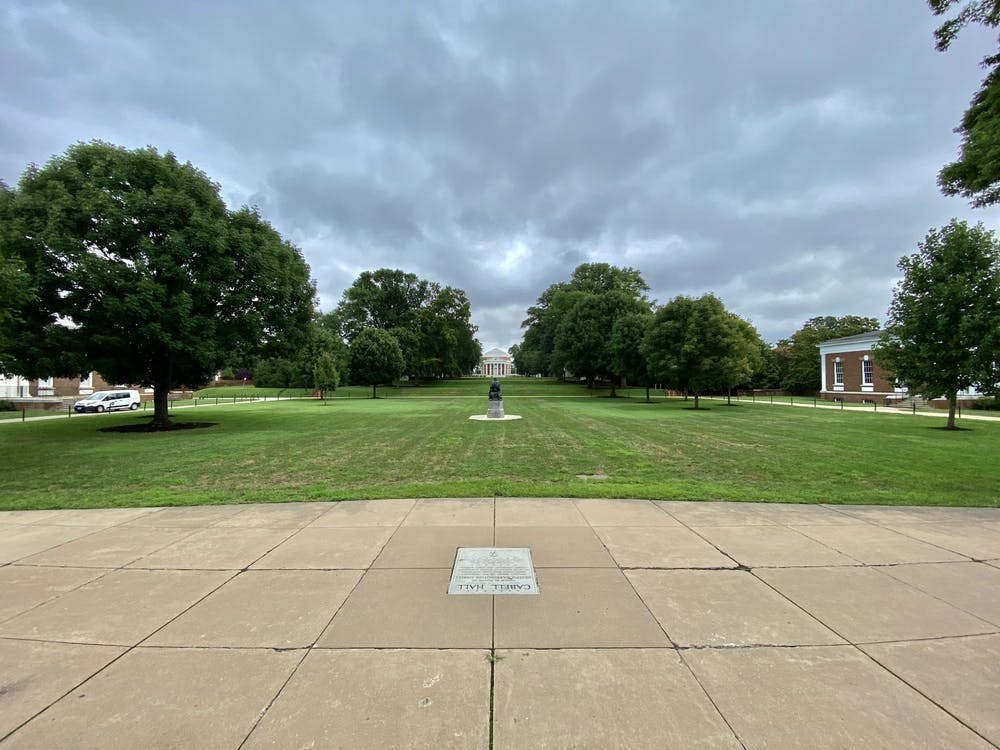A recent Washington Times article, promoted by the University’s Young Americans for Freedom Twitter account, decries “U.Va.’s culture of left-wing intolerance.” The gist of the argument is as follows — Mr. Jefferson’s University ironically shirks the “Jeffersonian tradition” of free expression because the administration, too “timid” when it comes to protecting conservative speech, allows a “militant minority” of leftist students to enforce “cancel culture” on Grounds.
In defining the “Jeffersonian tradition,” the article excerpts from the Virginia Statute for Religious Freedom. In fuller context, Jefferson asserts that “truth is great and will prevail if left to herself,” and that truth “is the proper and sufficient antagonist to error, and has nothing to fear … unless by human interposition disarmed of her natural weapons, free argument and debate.” Jefferson’s indispensable point here is that truth emerges from the collision of adverse opinions, and, further, that this process must not be obstructed.
Deferring to that principle, I have in the past made a point to acknowledge the right of the YAF to hold ignorant demonstrations, such as one in November 2020 claiming that masks, Reddit, BLM, Defund the Police, DC statehood and “U.Va. Twitter” — among other things — were somehow symbols of tyranny. While I thought the demonstration was offensive and fatuous, I trusted that my peers would come to the same conclusion. Since the demonstration was soon met with ridicule and obloquy, I think that my faith in the “Jeffersonian tradition” was vindicated.
But I’m afraid that the Washington Times may mistake the “Jeffersonian tradition” in action with “cancel culture.” The author holds that leftists on Grounds enforce cancel culture “through a social-media reign of terror,” offering the example of former Student Council member Nick Cabrera, whose “lonely conservative stances” elicited hostility online. Certainly, in accordance with University policy, any harassment against Cabrera based on his “protected characteristics” shouldn’t be tolerated. However, we must distinguish between harassment and criticism of opinions — the latter is essential to free debate, not “cancel culture.” After all, Cabrera was a Student Council member with controversial stances that others were entitled to oppose — this ideological opposition is actually a manifestation of “the Jeffersonian tradition,” which demands that ideas be subjected to fierce debate.
That distinction aside, I find the author’s claim that the University hasn’t yet extended its “free-speech commitment” to conservative students to be a vacuous narrative supported by incomplete evidence. For example, the author, referencing YAF signage in support of Amy Coney Barrett, notes that “vandals twice tore down banners [a YAF member] had hung — with official permission — in the amphitheater.” The parenthetical “with official permission” is worthy of attention, as it reveals that the University was not at all timid in permitting the display of conservative views in the amphitheater. In fact, according to another article by the Washington Times author, the University was very accommodating — the Director of the Rotunda Operations and Events “pledged to be a resource,” University police looked into the theft of the banner and University Facilities Management hung a new YAF banner out of reach in order to especially protect conservative speech. The YAF banner episode, meant to portray the University as complicit as leftist students “cancel” conservative views, seems more like evidence to the contrary.
A crux of the article’s argument lies in contrasting the vandalism of the YAF sign with the reception of a sign reading “F—k UVA,” which was posted by former student Hira Azher on her Lawn room door. The author suggests that the University’s protection of the “F— UVA” sign, which was meant to speak out for marginalized communities on Grounds, indicates that leftist opinions receive special treatment — a claim undermined by the fact that YAF’s banner was likewise protected.
Notably, too, the author fails to recount the entirety of the “F— UVA” sign saga, which, in its full context, does not support his conclusions. For example, in a Cavalier Daily column, Azher recalled that some tried to suppress her speech, too. A University alumnus, presumably intending to deface the sign, approached her door with a razor blade. In another instance, police confronted Azher after somebody had deemed the sign “offensive.”
In fact, because of the “F— UVA” controversy, University President Jim Ryan later reviewed University policy, seeking to “find a better balance between protecting First Amendment rights'' and preserving the Lawn’s “character” by restricting the permissible size of future Lawn room signs. On top of that, when Azher put up another sign criticizing the University’s “history of white supremacy” and poor pandemic response, the University removed it due to its purportedly “threatening nature” — the University’s rationale was criticized by the Virginia ACLU Executive Director, who noted that “[the sign] does not appear to be intended to produce ‘imminent lawless action’” and is not “likely to ‘produce’ such action.” I believe that it takes some mental gymnastics to weigh the official censorship of Azher’s progressive speech against the vandalism of two YAF banners by a few individuals and conclude the latter to be more indicative of a systemic problem on Grounds.
The article concludes that, in practice, “enforcing free-expression policy will mean standing up for conservatives and others who run afoul of UVa’s cancel culture.” However, since Azher — whose presumably left-leaning politics elicited actual censorship from the University — seems to fall in the category of those who’ve “run afoul of U.Va.’s cancel culture” too, perhaps there isn’t a mob enforcing “leftist orthodoxy” on Grounds after all.
Robert McCoy is an Opinion Columnist for The Cavalier Daily. He can be reached at opinion@cavalierdaily.com.
The opinions expressed in this column are not necessarily those of The Cavalier Daily. Columns represent the views of the authors alone.







